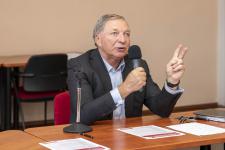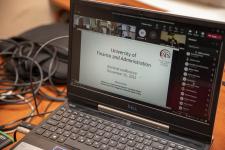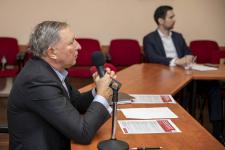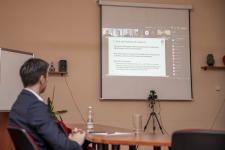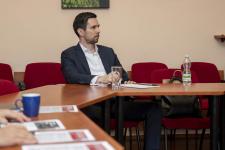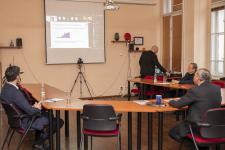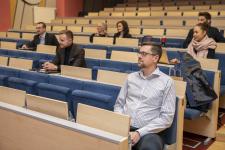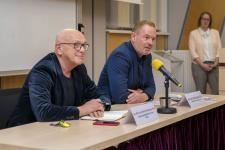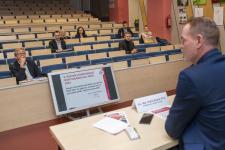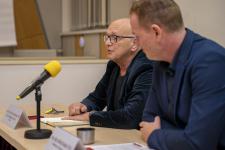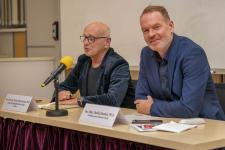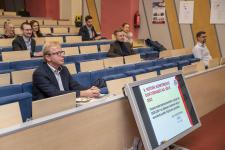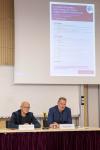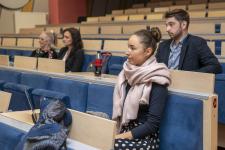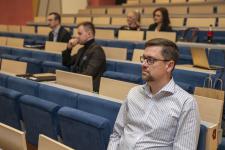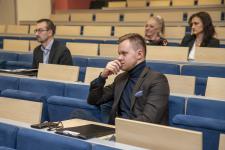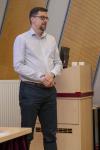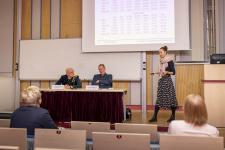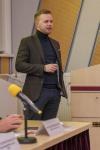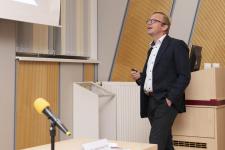THE DOCTORAL STUDENTS CONFERENCE at the university of finance and administration 2022
Nassim Taleb's book Antifragile is one of the significant intellectual texts of recent years that have provocatively inspired economic and sociological streams of thought. While the unconventional opinions and observations found in Nassim Taleb’s book Black Swan essentially constitute a specific criticism of modern thought that overlooks highly improbable events and submits to the chimera of illusory security constructed on quasi-comprehensive predictive analyses, Antifragile has become rather an optimistic concept of humans’ potential to overcome the unprecedented uncertainty of future events and unforeseeable events in life. This involves a hopeful scenario under the conditions of a risk-filled and volatile world saturated with uncertainty, in which the significance of resilience as a form of stamina, adaptability and the ability to regenerate meaning not only individual psychologically embedded life strategies, but also the ability to keep comprehensive systems (ecological, social, economical…) viable, to adapt and to renew oneself under various states of threat or damage and to prevent one’s own collapse are becoming increasingly significant. Antifragile is not simply a reference to resilience itself as an adaptive strategy for resisting unfavourable powers and the ability to overcome a crisis, but also to using these crises and the destructive forces of their impacts in a period of growing uncertainty and unpredictability to positive effect and for the general good. In an era of Ulrich Beck’s “unseen risks”, Nassim Taleb’s “black swans” or Zygmunt Bauman’s “liquid modernity”, resilience has become a key life model and a mechanism for maintaining complex systems in the living and non-living worlds. The age of imbalance and uncertainty has regularly manifested itself in recent years. In the migration crisis, the coronavirus pandemic, the war in Ukraine, the energy crisis, the economic recession, inflation and climate change.
In 2021, we were especially affected by the coronavirus pandemic when preparing
and realising the 8th Doctoral Students Conference at the University of Finance
and Administration and we had no idea that the next black swan on the horizon would be the invasion of Ukraine by Russian forces. And that is not all. At the turn of October and November 2022, i.e. in the preparation period for this year’s 9th Doctoral Students Conference, the volatile world also offered up a number of other events. A 6.6 magnitude earthquake in Nepal followed by an earthquake in the Pacific with an intensity of 7.1 and then the earthquake at Twitter with the intensity of Elon Musk. The new owner sacked approximately 3400 employees by email and then banned the rest from working at home. Meta sacked 11,000 employees. A general strike in Belgium, congressional elections in the USA and Biden considering running again. The 27th UN climate change conference took place at Egypt’s Sharm El-Sheikh. According to the UN Secretary General António Guterres, we are irrevocably heading towards climate hell. Prime Minister Khan was shot in Pakistan and Lula di Silva became the president in Brazil. The governing Finnish coalition was involved in a dispute over the rights of the Sámi people. Hackers attacked the ALMA telescope. 134 victims resulted from the collapse of a bridge in India. Demonstrations continued in Iran, Turkey reached a year-on-year inflation rate of 85% and inflation in the Eurozone reached record values during October. Last year’s elections were repeated in one part of Berlin. The growth in the EU economy slowed down. The deficit in the Czech Republic’s public finances grew to 4.6% and the prices that people in Prague pay for heat rose by 12 to 15%.
I consider scientific conferences and other platforms of academic discussion and knowledge sharing to be exceptionally necessary in such socially, economically and politically volatile times. I am convinced that this year’s 9th Doctoral Students Conference at the University of Finance and Administration will inspire its participants to think and to open up new horizons of cognition in the socio-economic and financial areas of life and society. As was the case last year, we also expanded the thematic range of the papers presented by the doctoral students this year to include the area of the social sciences with an emphasis on the economic and financial contexts of research orientation. This year’s conference was realised in two scientific sections for the first time. The first section traditionally belonged to Czech and Slovak doctoral students. We invited doctoral colleagues not only from the University of Finance and Administration, but also from the Institute of Economic Studies at the Faculty of Social Sciences at Charles University and the Law Faculty at Charles University. The second section belonged to the German doctoral students at the University of Finance and Administration, who, with one exception, all appeared online using MS Teams.
The publication from the 9th Doctoral Students Conference contains 14 expert papers that have been subjected to an anonymous peer review. They mostly thematically focus on the area of the finance and banking sectors and currency policy, but there are also interesting papers, for example, on the risk of burnout syndrome in financial managers, the impacts of macroeconomic developments on interest rates in the Eurozone, the use of vehicle movement records during tax administration or an analysis of the statistical dependencies between the gross domestic product and various insurance markets in various European countries.
I would not only like to thank the authors for their papers here, but also the reviewers for their thorough assessments of the texts’ expert qualities. Thanks is also due to the moderators of the individual scientific sections, the Vice-rector of the University 10 of Finance and Administration, Associate Professor Dr Petr Budinský CSc., the Dean of the Department of Economics and Management at the University of Finance and Administration, Associate Professor Dr Ing. Otakar Schlossberger, Ph.D., and the Head of the Finance Department, Ing. Eva Kostikov, Ph.D. I would also thank my colleagues Markéta Holendová from the Department of Research and Development at the University of Finance and Administration for her conscientious organisational and editorial work and Bc. Kamila Procházková for her organisation and technical support.
The conference was supported by using objective oriented support for specific university research by the Ministry of Education, Youth and Sport of the Czech Republic.
Assoc. Prof. Mgr. Ondřej Roubal, Ph.D.
Vice-rector for Research and Development
at the University of Finance and Administration,
the conference’s expert guarantor



